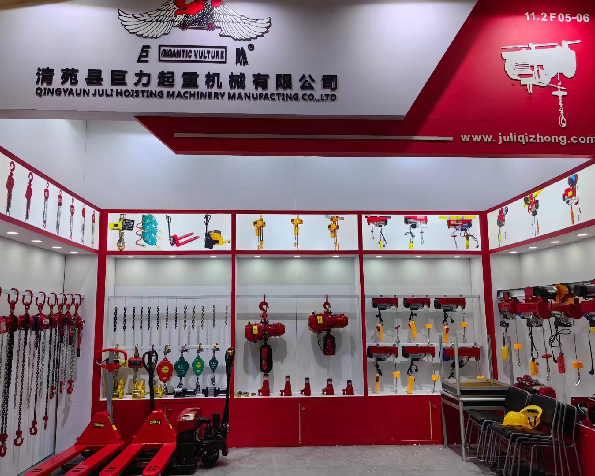


Understanding Chain Blocks and Lever Blocks Essential Tools in Material Handling
In the world of material handling and lifting equipment, chain blocks and lever blocks play a crucial role in enhancing efficiency and ensuring safety. These mechanical devices are designed to lift heavy loads with relative ease, making them indispensable in various industries, including construction, manufacturing, and warehousing. This article will delve into the functionalities, advantages, and best practices associated with using chain blocks and lever blocks.
Chain Blocks Mechanics and Applications
A chain block, also known as a chain hoist, is a device that utilizes a series of chains and gears to lift heavy loads. It comprises a chain, which is pulled to lift the load, along with a hook to attach to the item being lifted. Chain blocks operate using a simple mechanical advantage system, allowing operators to lift weights that exceed their physical capabilities.
The primary application of chain blocks is in environments where heavy lifting is required. Common uses include lifting materials to high construction sites, loading and unloading heavy machinery, and moving large objects in factories. Their portability and ease of use make them ideal for both permanent and temporary setups. Moreover, chain blocks are available in various capacities, ensuring that there is an option suitable for nearly every lifting requirement.
Lever Blocks A Different Approach
On the other hand, lever blocks, or lever hoists, operate on a different principle. Instead of a chain, they utilize a lever mechanism to lift a load. The operator pulls on the lever, which engages a ratchet mechanism, allowing the load to be lifted incrementally with each pull. This design not only reduces the effort needed to lift heavy items but also provides greater control over the lifting process.
Lever blocks are particularly useful in tight spaces where traditional lifting equipment may be impractical. Their compact design and lightweight nature allow them to be easily maneuvered in crowded work environments. They are commonly used in applications such as auto repair shops, where heavy car parts need to be lifted, and in warehouses for adjusting the placement of pallets.

Comparing Chain Blocks and Lever Blocks
While both chain blocks and lever blocks are used for lifting, they serve different purposes depending on the specific needs of the job. Chain blocks are more suited for raising and lowering loads quickly and with high capacity, making them ideal for construction and heavy-duty applications. In contrast, lever blocks provide more finesse and control over the load movement, making them better for tasks that require precision.
Safety Considerations and Best Practices
Regardless of the type of lifting device being used, safety must always be the top priority. Operators should ensure that they are trained in the proper use of chain blocks and lever blocks, including understanding their load limits and how to inspect them for wear and tear. Regular maintenance is essential to keep these devices in optimal working condition, and load testing should be performed periodically.
Additionally, it's vital to use appropriate rigging techniques and ensure that the area is clear of obstacles and personnel during lifting operations. Properly secured loads and using the devices within their rated capacity can prevent accidents and ensure safe lifting practices.
Conclusion
In conclusion, chain blocks and lever blocks are vital tools in the realm of material handling, each serving distinct roles in lifting applications. By understanding their functionalities, advantages, and safety measures, workers can effectively utilize these tools to enhance productivity while ensuring a safe working environment. As industries continue to rely on these devices, knowledge about their proper use will remain an essential component of operational success.



